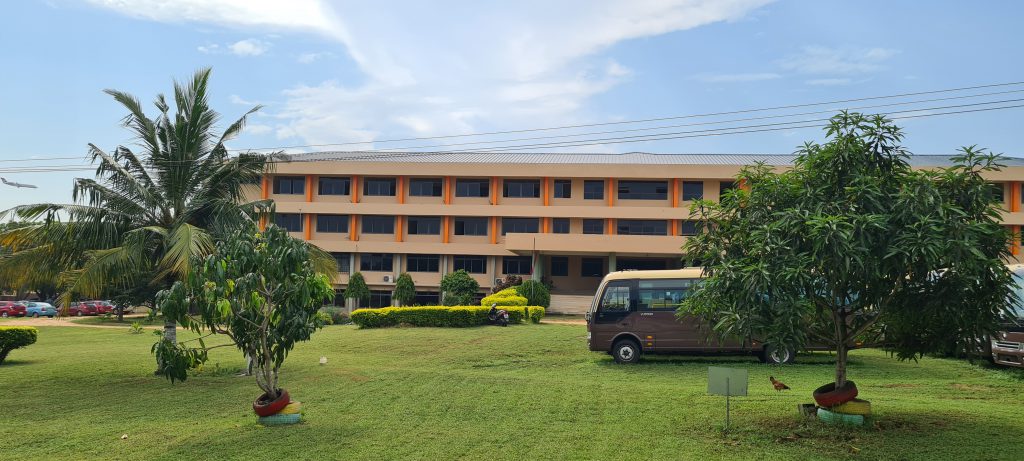Pilot Training Institute

The Pilot Training Institute (PTI) is the first training institute established by the National Vocational Training Institute (NVTI) in 1970, after the enactment of the National Vocational Training Act, ACT 351. The institute was to provide both formal and informal training and retraining in employable skills to the youth and any other person desiring a skill.
PTI exists to provide competency – based vocational skills training through apprenticeship and retraining, including entrepreneurial skills to meet industrial demands, promoting self-employment in the formal sector and upgrade the skills and competences of the people in the informal sector to meet the acceptable standards.
The following programmes are being offered currently at the Institute: Building Construction, Building Draughtmanship, Carpentry and Joinery, Electronics, General Electrical Installations, Industrial Maintenance, Mechanical Engineering and Craft Practice, Refrigeration and Air-Conditioning, Welding and Fabrication. Mathematics, English Language, Entrepreneurial Skills, ICT and/or Integrated Science are mandatory
NVTI was founded in 1968 and, as a network of 34 training centers, was the largest vocational training institution in Ghana since it became part of the newly established Ghana TVET Service in 2021. In terms of quality, equipment and working conditions, there are great differences between the training centers spread throughout the country.
NVTI offers training in 26 specialties at various levels from school-based apprenticeships to Certificate II.
As a state institution with central importance for the vocational training sector, NVTI has already carried out international cooperation projects, among others with GIZ and the Federal Institute for Vocational Education and Training/iMOVE.
Change in 2022: From NVTI to Ghana TVET
The title NVTI has been changed to Technical and Vocational Education and Training (TVET) Service to bring all vocational education and training programs operated by different ministries together.
This brings together all technical and vocational programs run by 19 different ministries under Ghana TVET Service.
The operationalization of the service was also to ensure the smooth launch of the government’s flagship program, Free TVET For All, under which all vocational training institutions under the Ghana TVET Service have been included in the next academic years.
Prior to the change to Ghana TVET Service in 2017, there were many challenges to overcome, including the poor perception of TVET, the multiplicity of standards, testing and certification systems, and an informal TVET system that was neglected and disconnected from the formal sector. All of this affected the quality of vocational education offered by the institutions.
The change is an attempt to transform the capacity of the country’s education sector and focus attention on professional development and capacity building of the facilitators and teachers who will train young people in the various technical and vocational training institutes.

